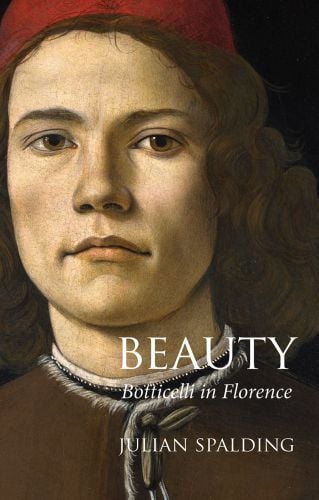Full Description
‘Beauty is the beacon of God,’ said Botticelli. ‘No, it’s not. Love is,’ snapped his sister.
Beauty: Botticelli in Florence imagines what Botticelli was feeling and thinking as he painted. The people he loved and despised, his private struggle between spirituality and sensuality, the tempestuous times he lived through – all come to life in his images…
The novel is a speculation based on the few facts known about Botticelli, informed by his paintings. There are many surprises. The Birth of Venus was a tapestry design. And his famed self-portrait didn’t depict him (as widely believed) but Pierfrancesco de Medici, who sued his powerful cousin Lorenzo for robbing him, abolished Florence’s homophobic witch-hunts, funded Vespucci’s journey to the New World and commissioned Botticelli’s most famous works. There was boiling tension between him and Botticelli.
This is the first in a sequence of illustrated ‘painting novels’ that make sights as telling as words.
About the Author
Julian Spalding (born 15 June 1947 in Lewisham, South London) is an English art critic, writer, broadcaster and a former curator. Considered to be a controversial maverick and outspoken critic of the art world, he has frequently contributed to arts, news and current affairs programmes on radio and TV. Spalding grew up on a council estate in St Mary Cray, South London. His upbringing there played an important part in shaping his subsequent outlook, particularly with regard to understanding how social inequality and cultural deprivation have a negative impact on people's lives. He studied art history at the University of Nottingham and art at Nottingham Art College, and after a brief spell as an artist and designer he chose to work in museums and galleries. Spalding started as an art assistant at museums in Leicester and Durham before becoming director of galleries for Sheffield, and then Manchester. In 1989 he was appointed director of Glasgow Museums, responsible for the largest collection managed by a local authority and Kelvingrove Art Gallery and Museum. During his career as a curator he established several award-winning, innovative galleries and museum services, including the Ruskin Gallery in Sheffield; the St Mungo Museum of Religious Life and Art and The Gallery of Modern Art (GoMA) in Glasgow; and the Open Museum. In 2000, he also instigated the now international Campaign for Drawing. In 1999, he was awarded the Lord Provost's Prize for Services to the Visual Arts in Glasgow for his directorship of Glasgow Art Galleries and Museums, although his curatorial career was cut short the same year when his post, along with others, was abolished by Glasgow City Council. Spalding subsequently spoke internationally and advised museums and galleries about new and innovative approaches, later outlined as what he describes as a practical philosophy in his 2002 book The Poetic Museum. He is also a Companion of the Guild of St George, and served as Master from 1996 to 2005. Since 2001, he has concentrated chiefly on his writing, winning the Banister Fletcher Prize in 2006 for his book The Art of Wonder and the Sir Robert Smith Award for Art Exposed.
